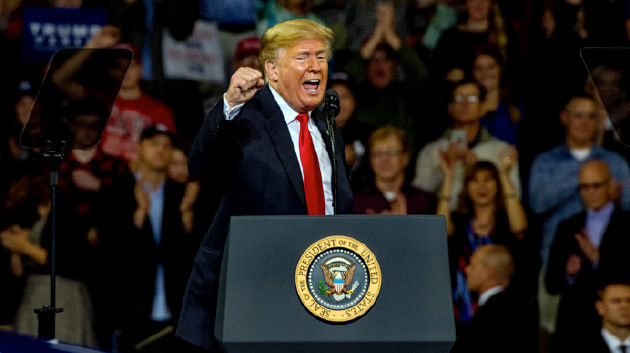Trump’s Sweeping Victory at Midterm Elections
The Trump Revolution Moves on
mark reinstein / Shutterstock.com
The U.S. has given her verdict. In the midterm elections held in early November, the Republican Party won a majority in the Senate, but the Democrats won a narrow majority in the House: a divided Congress.
Trump, however, announced that it was a “big Victory.” This is because his strategy was to prioritize the Senate seats, and he had accordingly been campaigning through prominent states in close competition for Senate seats. The result was a majority win in the Senate and victories in gubernatorial elections in the most prominent states.
Historically, most Presidents lose in the House, and while it would have been better to win in both, the elections nonetheless made it clear that there is steady support for the Trump administration’s strategy for job creation.
What Will Happen With a Divided Congress?
What will happen with U.S. politics now? The Senate has the powers to approve official personnel, and to ratify treaties, so the Supreme Court, federal courts, Cabinet, appointment of ambassadors, and the Free Trade Agreement (essential to bilateral negotiations) will continue to function according to Trump’s intentions.
On the other hand, legislation requires approval from both the Senate and the House. Where the Democrats hold the majority in the House, it would be harder to continue Mexican-border regulations and tax cuts for middle class workers.
Increasing emphasis may be put on the 2016 elections scandal involving Russia, and some powers may push impeachment deliberations against Trump. As a last resort, however, Trump will always have the right to issue an Executive Order which bypasses Congress approval. In this case, he should be prepared for bashing like never before.
Achievements Within the Government
It is likely that Trump’s infrastructure investments and China policy will still be in place.
There is also a likelihood that Trump’s infrastructure plans will pick up speed. When Trump proposed a decade-long $1.5 trillion infrastructure scheme, it was slowed down when Republican Senators, who feared an increase in the fiscal deficit, protested. Ironically, it is Democratic representatives such as Nancy Pelosi (the next Speaker of the House) who were supportive of the investment scheme.
There are many critical voices amongst the Democrats against China’s threat and their religious oppressions. So this makes the China policy a point on which the Democratic Party could cooperate with the administration.
Trump’s next move will be to totally abolish China trade policies, such as the INF, and gradually shift his weight on diplomacy, while cooperating with the Democratic Party and achieving results within the government itself.
The Trump revolution moves on.



















